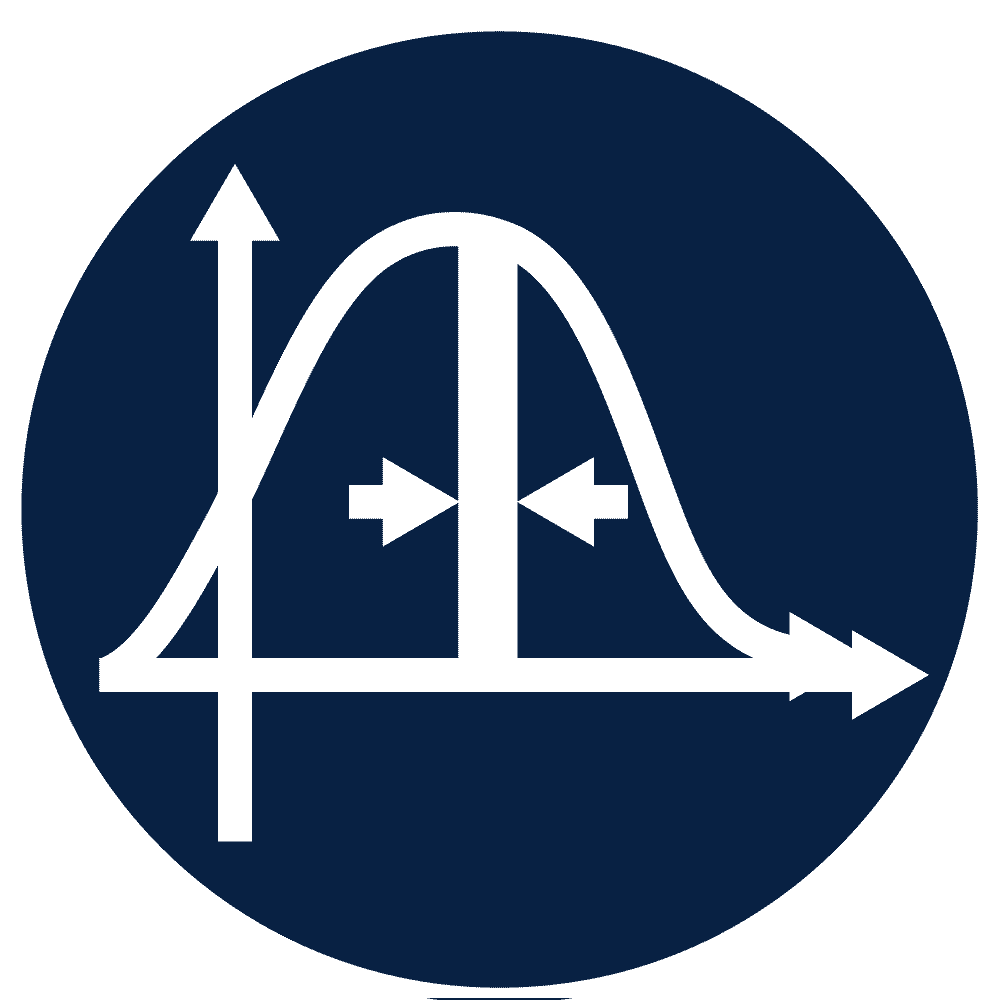Systems Engineering (5-Day)
This is PPI’s flagship course that changes companies, careers, and lives. The course is intended for anybody who will perform or manage significant engineering roles, whether or not under the name “systems engineering”. This course is ideal for formal engineering training in that it leads the participant through the ways of thinking and acting that is a systems approach to the engineering of systems. The course has been delivered so far to 11,600 professionals in 38 countries across 6 continents.
Requirements Analysis & Specification Writing (5-Day)
This course addresses the most common cause of project problems and failures – requirements. Developing the wrong thing is a bigger problem in engineering than making errors developing the right thing! The Requirements Analysis module addresses high ROI techniques used to capture, validate and gain a complete understanding of requirements communicated at all stages of the system life cycle. The module is rich in integrated, efficient model-based techniques. The Specification Writing module addresses in detail the conversion of individual requirements into effective requirements specifications. The module focuses on the structure and language of requirements specifications for requirements expressed in natural language. The course is applicable in both procurement and engineering development scenarios, and business models of entrepreneurial product development, development for internal customers and customer-contractor.
Systems Engineering Management (5-Day)
Great projects come about from great leaders bringing together people having a mix of knowledge, skills, and attitudes well-suited to the task. The leader creates a climate of trust and mutual accountability in pursuit of a shared vision. The leader also manages well, with special concern in engineering projects for managing requirements (scope), complexity, interfaces, configuration, knowledge, data and risk. This five-day Systems Engineering Management training course provides in-depth coverage of how to lead and manage engineering projects to maximize project success, within the project’s given constraints. The course establishes sound principles and provides effective methods to successfully manage engineering projects, and for getting the best out of people, individually and in teams.
Architectural Design (5-Day)
This course addresses the principles and methods of designing, regardless of what is being designed. The course, in largely workshop format, provides an integrated approach to the set of technical design process disciplines. These combine with technology knowledge to contribute to the satisfaction of requirements and maximization of system effectiveness, enhancing project success and reducing risk to the enterprise. The course is strong on model-based design in both theory and practice, without commitment to a specific modeling language or software tool. The disciplines of reliability, safety, maintainability, and producibility engineering are also overviewed.
Requirements, OCD & CONOPS in Military Capability Development (5-Day)
This course is a five-day immersion in the development of military (or any other) capability, with a focus on problem definition, Operational Concept Description (OCD – how the capability and each element of its solution will be used), and concept of operations (CONOPS – how the capability outcome is to be achieved), and specification of technology items and related services that will form a part of the capability solution. Learn how to avoid the legendary systemic problems of military capability development.
Engineering Successful Infrastructure Systems (5-Day)
This course is a five-day immersion in the successful engineering of infrastructure to deliver maximum value to stakeholders. The course is based on systems thinking, here applied to projects and engineering. Accordingly, the course has a strong systems engineering foundation. Systems engineering as a discipline has been proven to substantially reduce costs, reduce project durations and increase client satisfaction.
Software Engineering (5-Day)
This 5-day course in Software Engineering provides an overview of the elements for the effective realization of software and software-intensive systems that are cost-effective, on schedule, and meet stakeholder needs over the full life cycle. The course approaches software development from, simultaneously, a software technology and a systems perspective in the engineering of small and large, simple and complex software, and software-intensive systems. The course provides proven principles and effective methods for creating solutions to satisfying stakeholders with excellent, cost-effective software, reflecting agile and incremental approaches.
Requirements Engineering – English a Second Language (4-Day)
The requirements management content of this language-independent course addresses requirements traceability and change management. The requirements analysis content addresses the techniques used to capture, validate and gain a complete understanding of system requirements originating in all stages of the system life cycle. The specification writing content addresses in detail the conversion of individual requirements into effective requirements specifications, regardless of language. The structure of effective requirements specifications is addressed in detail.
Systems Engineering Overview (3-Day)
This 3-day Systems Engineering short course provides an overview of the principles and methods of systems engineering: an interdisciplinary, collaborative approach to the engineering of system solutions, adopted by leading enterprises worldwide, that aims to capture stakeholder needs, objectives and values, and to transform this problem definition into a holistic, lifecycle balanced system solution. This overview course is intended for participants and other stakeholders in technical projects who seek familiarity with systems engineering without themselves applying the principles and tools to engineering activities.
Project Risk and Opportunity Management (3-Day)
Project risk and opportunity management is a set of management techniques aimed at ensuring that actual and planned project outcomes at least coincide, or are exceeded. As such, project risk and opportunity management is practiced by the great majority of project planners, project managers, and their staff. Risk and opportunity management influence nearly every facet of planning and conducting a project, or at least they should do so. This course exposes the levers available – threat, vulnerability, probability, and value, and how to exploit them to maximize value delivery.
Software Requirements Analysis & Specification Writing (3-Day)
Software requirements analysis and specification writing are sciences practiced by many, mastered by surprisingly few. And yet, the payoff from achieving excellence in these areas is large. The two aspects, software requirements analysis (capture and validation) and software requirements writing, producing a Software Requirements Specification in some form, are treated as separate but related topics in this workshop-oriented course.
Integrated Product Teams (2 or 3-Day)
This course incorporates in-depth corporate training tailored to and using the team’s actual project as a focus, which reinforces an understanding of Integrated Product Teams. The course reviews the related concepts and methods of Integrated Product and Process Development, as applied to projects of significant size and complexity. The training establishes principles for getting the most out of Integrated Product Teams at all stages of a project, with much focus on the human characteristics that affect team performance.
Interface Engineering & Management (2-Day or 4-Half-Day)
Interfacing problems are historically the most common type of problem experienced in system integration. This groundbreaking course is aimed at the engineer or technical manager who wants to apply best practice techniques in the definition and management of interfaces to avoid delays, rework and other detrimental consequences of getting interfaces wrong. Whilst focussed on human-engineered physical systems, the course has relevance to interfaces to software and humans.
Requirements Analysis & Specification Writing Fundamentals (2-Day)
Endless studies have shown that developing the wrong thing is the single most common cause of project problems and failures. Requirements analysis and specification writing, performed well, addresses this reality head-on. Sadly, requirements analysis and specification writing are sciences practiced by many, mastered by surprisingly few. And yet, the payoff from achieving excellence in these areas is huge. The two aspects, requirements analysis (requirements capture and validation using analysis) and requirements specification, are separable but related topics covered by this valuable overview training.
Specification Writing (2-Day)
This two-day Specification Writing course provides detailed instructions on the conversion of requirements into highly effective requirements specifications. Issues of structure (organization of information) and the use of (English) language throughout a requirements specification are examined in considerable detail. Public domain specification standards are overviewed and compared. High-quality templates/guides are provided for the specification of systems, software, interfaces and services, respectively, with examples.
Managing Technical Projects (2-Day)
Experience is that projects have difficulty in delivering solutions to stakeholders on time, on budget, and satisfying needs. The greater the problem complexity, solution complexity, novelty, and diversity of stakeholders, the more this experience applies. This two-day course provides an introductory level of understanding of how to manage technical projects to maximize project success, within a set of constraints. The course establishes principles and exposes methods for managing to get the best out of people, individually and in teams.
A Systems Approach to Design (2-Day)
This two-day course addresses the principles and methods of designing things, regardless of what is being designed. The training provides an integrated approach to the set of technical design process disciplines. These combine with technology knowledge to contribute to the satisfaction of requirements and optimization of system effectiveness, enhancing project success and reducing risk to the enterprise.
Medical Device Risk Management (2-Day)
Expectations by Regulatory bodies of medical device companies in producing quality, logical and defensible risk management files are rising. This course teaches a disciplined, systematic approach to the analysis, estimation, evaluation, and control of safety risks associated with medical devices. The course provides a comprehensive coverage of the topics needed for successful management of safety risks in conformance with international standard ISO 14971. The scope of risk management includes both pre-market product development and post-market risk management. Application of formal risk management techniques can help predict and prevent serious harm to patients and losses to businesses. The course is authored and delivered by leading expert and author Bijan Elahi.
Introduction to Requirements Analysis (1-Day)
This short Requirements Analysis course addresses highly effective tools for both the capture of requirements and for validation of those requirements, in any scenario involving the receipt of requirements from one or more stakeholders who have a need. Effectiveness of the techniques, collectively comprising a complete methodology, is independent of the domain of application and independent of the specifics of the need. The techniques that are taught have been used with huge success in many different requirements scenarios. The course is applicable in the business models of entrepreneurial product development, development for internal customers, and customer-contractor.
Preparing Great Requirements Specifications (1-Day)
This one-day specification writing course addresses the conversion of individual requirements into effective requirements specifications. The course builds knowledge and understanding regarding structure and language. The course is applicable to the specification of both physical items and software items, from the largest to the smallest, in both procurement and engineering development scenarios, and business models of entrepreneurial product development, development for internal customers, and customer-contractor. The specification of services is overviewed but not covered explicitly in great depth. However, most of the principles and techniques have direct application to the specification of services.
Systems Engineering Executive Overview (4 hours)
PPI offers a half-day briefing subtitled “The Business Case for Systems Engineering”. “Show me the evidence!” says the executive who is unconvinced about supporting systems engineering practices that all seem to involve additional up-front work. The executive is skeptical, and so she should be! To permit major changes to the amount and balance of work without evidence of Return on Investment would be irresponsible. The purpose of this briefing is to provide that evidence.
Featured Course Reviews

Great material and the knowledge of the presenter. The course provided very valuable information that will be put to use immediately.
Anthony

I learned a great deal about my co-workers by observing their reactions to the course material – an invaluable part of the course for me. I will also benefit from the templates and other example/reference material. Being able to use these tools or standard templates will also be highly beneficial.
Jane

Good structure in the course, supplemented by professional course material, presented by a presenter who knew what he was talking about.
Luke

Great material and the knowledge of the presenter. The course provided very valuable information that will be put to use immediately.
Kate
